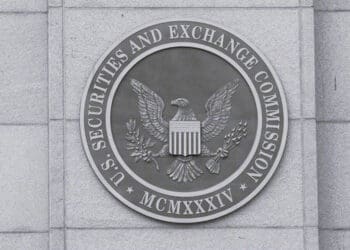Whistleblower award programs had record-breaking years in 2018, with more than $243 million in award payouts. Attorneys Michael Filoromo and Zac Arbitman entreat compliance professionals to be among those stepping forward, as the law entitles them to rewards and protection from retaliation when they do.
Whistleblower award programs established by the Securities Exchange Commission (SEC) and Commodity Futures Trading Commission (CFTC) hit their strides in 2018. Less than a decade after its founding, the SEC program paid more than $168 million to individual whistleblowers — more than the total amount awarded in all other years combined. The CFTC program experienced significant growth as well, awarding whistleblowers a total of $75 million in 2018 – nearly seven times the roughly $11 million total the agency had doled out since the program’s inception in 2010.
Though relatively new, the recent successes of the SEC and CFTC whistleblower programs suggest that many of their kinks have been ironed out and that enforcement actions begun as a result of whistleblower tips are coming to fruition. Given this, and the increase in awareness surrounding the programs, whistleblowers are now stepping forward with more frequency — and more success. Compliance professionals can and should be among them, and the law entitles them to rewards and protection from retaliation when they speak up.
SEC and CFTC Whistleblower Programs
Congress passed the Sarbanes-Oxley Act (SOX) in 2002 after several highly publicized instances of financial misconduct, including massive schemes carried out by Enron and MCI, among others. SOX provided a comprehensive set of rules and regulations designed to prevent similar accounting frauds from occurring at publicly traded companies. Relevant here, SOX contained a whistleblower provision designed to protect employees from retaliation by their employers for reporting fraud and violations of securities laws.
After additional financial wrongdoing came to light in the wake of the 2008 market collapse and the Bernie Madoff scandal, Congress furthered its regulatory overhaul with the passage of the Dodd-Frank Wall Street Reform and Consumer Protection Act (Dodd-Frank) in 2010. Lawmakers enacted Dodd-Frank with the hope of enhancing the government’s ability to detect and prevent large-scale fraud and restoring confidence in United States financial markets.
Dodd-Frank included a directive to the SEC to create a whistleblower program providing monetary incentives for individuals to come forward with information about securities violations. The statute also directed the creation of a similar whistleblower program for commodities trading to be administered by the CFTC.
To submit a successful tip under the SEC whistleblower program, an individual must voluntarily provide original information about a violation of the federal securities laws that has occurred, is ongoing or is about to occur. Such information may be related to:
- Ponzi schemes, pyramid schemes or high-yield investment programs
- Theft or misappropriation of funds or securities
- Manipulation of a security’s price or volume
- Insider trading
- Fraudulent or unregistered securities offerings
- False or misleading statements about a company (including false or misleading SEC reports or financial statements)
- Abusive naked short-selling
- Bribery of or improper payments to foreign officials
- Fraudulent conduct associated with municipal securities transactions or public pension plans
The information provided must lead to a successful SEC action resulting in an order of monetary sanctions over $1 million. And though such individuals are often employees of the companies about which they are submitting information, an employment relationship is not required to submit a successful tip.
Similarly, to submit a successful tip under the CFTC whistleblower program, an individual must voluntarily provide original information about a violation of the Commodity Exchange Act (CEA) leading to a recovery over $1 million. The CFTC is the government agency responsible for regulating the United States derivative markets, including futures, options and swaps; therefore, information giving rise to potential CEA violations may often concern misconduct related to trading activity, including:
- Fraud, including fraudulent solicitation, misappropriation of customer funds, issuing false customer account statements, mishandling customer funds, Ponzi schemes and affinity schemes
- Market manipulation, including disruptive trading practices such as fictitious and noncompetitive transactions, illicit trading strategies designed to manipulate or attempt to manipulate prices and spoofing
- Trade practice violations, including wash sales, fictitious sales, noncompetitive transactions, violation of position limits, noncompetitive exchange of futures for physical transactions opposite each other, unauthorized swap transactions, inadequate oversight of traders, undercapitalization, improper controls and supervision, improper handling and/or segregation of customer funds, failing to comply with applicable recordkeeping and audit trail rules and creating after-the-fact trading records containing fictitious information that were submitted for clearing.
Such misconduct may arise with respect not just to traditional commodities (e.g., cotton, wheat, etc.), but also within the context of things like oil and gas, treasury futures, currencies and alternative investment products.
Rewards and Retaliation Damages for SEC and CFTC Whistleblowers
Under the SEC program, eligible whistleblowers are entitled to an award of between 10 percent and 30 percent of the monetary sanctions collected in an SEC or related action. As detailed below, Dodd-Frank also allows individuals to recover certain damages for retaliation suffered as a result of their whistleblowing, including: (a) reinstatement, (b) two times back pay with interest and (c) attorneys’ fees and costs.
Like the SEC program, CFTC whistleblowers are entitled to an award of between 10 percent and 30 percent of the monetary sanctions collected in a CFTC or related action. Remedies for anti-retaliation claims under the CEA are slightly different from those available under Dodd-Frank. They include: (a) reinstatement, (b) back pay with interest, (c) attorneys’ fees and costs and (d) compensatory damages for reputational and emotional harm.
The $168 million in awards issued by the SEC program in 2018 went to just 13 individual whistleblowers. Of those 13 whistleblowers, three individuals shared an award of $83 million and two other individuals shared a nearly $54 million award. Likewise, the CFTC program issued five awards amounting to more than $75 million, with one whistleblower receiving $30 million — the program’s largest whistleblower award to date.
Compliance Personnel as SEC and CFTC Whistleblowers
Can compliance personnel, whose duties typically include receiving information about and attempting to correct violations of law, be whistleblowers entitled to SEC and CFTC awards? Does this present an inherent conflict of interest? The regulations implementing Dodd-Frank address these issues.
Under both the SEC and CFTC programs, a whistleblower must have “independent knowledge” or have conducted an “independent analysis” to qualify for an award. This requirement has implications for compliance personnel, who frequently learn about — and have an opportunity to address — alleged wrongdoing in the performance of their duties. To promote robust internal compliance programs and avoid conflicts of interest, the SEC and CFTC whistleblower program rules deem certain individuals presumptively ineligible for awards.
One category includes attorneys who work for or represent the company, as well as non-attorneys who possess attorney-client privileged or confidential information. There is an exception where federal or state ethics rules, including SEC or CFTC rules, would permit the disclosures.
Another category includes individuals who play central roles in internal compliance programs. Specifically under the rules, the SEC will not consider information to be derived from independent knowledge or analysis where the individual obtained the information in the performance of his or her duties as:
- an officer, director, trustee or partner;
- an employee with compliance or audit responsibilities;
- part of a firm retained to conduct an investigation into possible legal violations; or
- part of a public accounting firm, if the individual obtained the information through the performance of an engagement required of an independent public accountant under the federal securities laws (in the case of the SEC program).
Individuals are also ineligible for awards where their information comes from individuals who would be ineligible for awards themselves.
These exclusions do not prohibit individuals from claiming “independent knowledge” where they learn the relevant information outside their compliance roles. Additionally, important exceptions apply that allow individuals with compliance responsibilities to be eligible for an award:
- where there is a reasonable basis to believe that disclosure to the SEC is necessary to prevent conduct likely to cause substantial injury to the financial interest or property of the entity or investors;
- where there is a reasonable basis to believe the entity is engaging in conduct that will impede an investigation of the misconduct (e.g., by masking illegal schemes or destroying evidence); or
- where 120 days have elapsed since the whistleblower: (a) provided the information to the audit committee, chief legal officer, chief compliance officer or the individual’s supervisor or (b) received the information, if the circumstances indicate that the entity’s audit committee, CLO, CCO or the individual’s supervisor was already aware of the information.
Despite these stringent requirements, there is precedent for audit and compliance professionals receiving whistleblower awards. In August 2014, the SEC announced a $300,000 award to an audit and compliance professional. Eight months later, a compliance officer received an award of between $1.4 million and $1.6 million from the SEC.
Whistleblowers are instrumental in rooting out fraud left undetected by law enforcement. While blowing the whistle can put an individual’s career at risk, the law provides rewards and protections for those who come forward with evidence of financial fraud. These rewards and protections are available to compliance personnel under the SEC and CFTC whistleblower programs. But the SEC and CFTC balance these incentives with requirements that compliance personnel also fulfill certain job duties. Nevertheless, given the rapid growth of these programs and the fact that compliance professionals are in unique positions to detect the financial fraud, we can surely expect an increase in tips from such individuals in the future.



 Michael A. Filoromo, III is a partner with the whistleblower and employment law firm
Michael A. Filoromo, III is a partner with the whistleblower and employment law firm  Zac Arbitman is a Senior Associate and trial attorney at Youman & Caputo, LLC, where he represents whistleblowers in claims brought under state and federal False Claims Acts, various state whistleblower statutes and the IRS, SEC and CFTC whistleblower programs. Mr. Arbitman also dedicates a significant portion of his practice to representing catastrophic injury victims in cases involving medical malpractice, motor vehicle accidents, workplace injuries, premises liability and product liability.
Zac Arbitman is a Senior Associate and trial attorney at Youman & Caputo, LLC, where he represents whistleblowers in claims brought under state and federal False Claims Acts, various state whistleblower statutes and the IRS, SEC and CFTC whistleblower programs. Mr. Arbitman also dedicates a significant portion of his practice to representing catastrophic injury victims in cases involving medical malpractice, motor vehicle accidents, workplace injuries, premises liability and product liability.






